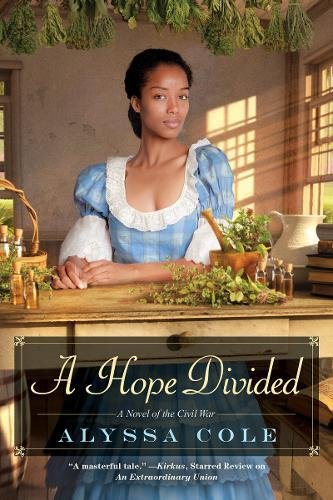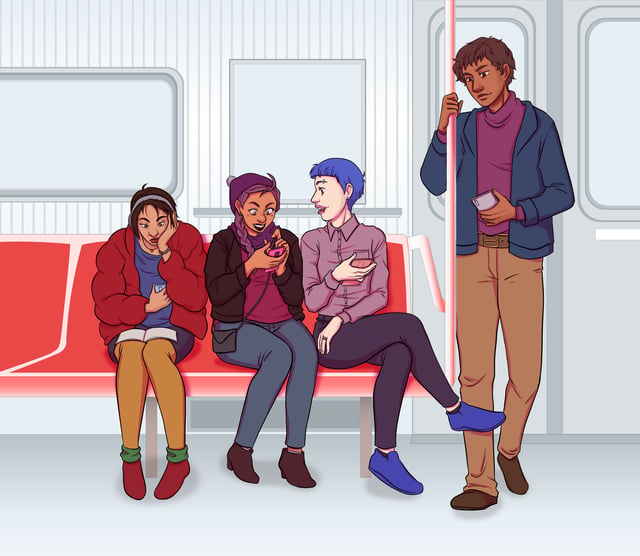It’s easy to assume that, given the similarities in premise - black spy heroine meets white spy hero during the American Civil War - the first two books in Alyssa Cole's Loyal League series would read alike. Cole’s trademarks are all here in A HOPE DIVIDED: beautiful writing with cutting observations and resonant imagery, a evident depth of research into both events and occupations, and a careful exploration of trust and loyalty. That said, this second novel is tonally very different from the first. While AN EXTRAORDINARY UNION pushed and pulled the two main characters together with acts of daring and heroism, including espionage and physical confrontations, A HOPE DIVIDED is a quieter story.
Marlie, the daughter of a freed slave and a wealthy white plantation owner, lived the first several years of her life with her mother, learning the healing arts. When she moves in with her wealthy white family, Marlie experiences her biracial heritage in some of the same ways that modern Americans do, in that she doesn’t feel as though she belongs entirely in either world, but white Americans are determined to tell her who and what she is. She is part scientist, part root woman, with a vocational identity as divided as her racial one. As the war progresses and her family becomes host to the Home Guard, a group of Confederates dedicating to rounding up the men who refuse to fight for the Cause, Marlie’s life falls apart. Her tenuous relationship with the outside world, as a healer and respectable woman, is severed. Her own family essentially abandons her, leaving her to her attic rooms where she studies and makes her tonics and salves.
If Marlie’s story is one of deep loneliness, Ewan’s is likewise. Ewan is perhaps neuroatypical, with a tendency to lecture and an apparent lack of empathy that the Union has deemed useful. When we meet him, he’s been in a Confederate prison for the last couple of years, hiding his true identity - that of a “counter-intelligence expert.” The Union has been having him interrogate (torture) prisoners. Because, according to them, Ewan’s ability to do the work must mean it doesn’t bother him.
Marlie and Ewan meet while she is providing aid to the prisoners at one such prison. She sneaks him books, and they develop the kind of relationship that consists entirely of short notes and long glances. It’s a relationship that is both forbidden and safe… until Ewan escapes. Marlie hides him in her drying room while his sprained ankle mends and her house is taken over by the Home Guard and a particularly awful villain.
Their relationship grows slowly, with physical intimacy something delayed until late in the book. Their emotional intimacy, however, is a beautiful thing, rendered with skill. Take this passage, from a time during which Ewan is helping Marlie to translate a piece of her mother’s letters:
“She’d thought this would be a simple exchange of words, but she quickly realized how wrong she was. Translation was an act that revealed as much about the person doing it as the text. The way his expression grew tense with anger as he parsed certain lines, or solemn with respect. The way he smiled when he came across a particularly sharp observation. How the passages sparked memories in Marlie, and her resulting stories had the reciprocal response in him… Their translation felt like a greater intimacy than if he had pressed his mouth to hers, though she couldn’t help but wonder what that would feel like, too.”
With A HOPE DIVIDED, Cole has given us another gorgeous historical romance, different from the first in the series, but no less powerful for it. She explores the myriad reasons that people in the South didn’t fight in the war, the reasons people stayed, and the ways in which hope can survive in even the darkest of times. It’s another story that is difficult to read given current events, but is ultimately rewarding for the same reasons. A HOPE DIVIDED gives us a chance to see that, even when the world seems to be falling apart, we can all hope for moments of connection and joy while we do the work to put things back together.
Publication Date: 11/28/17
Pick Up a Copy: or Amazon


